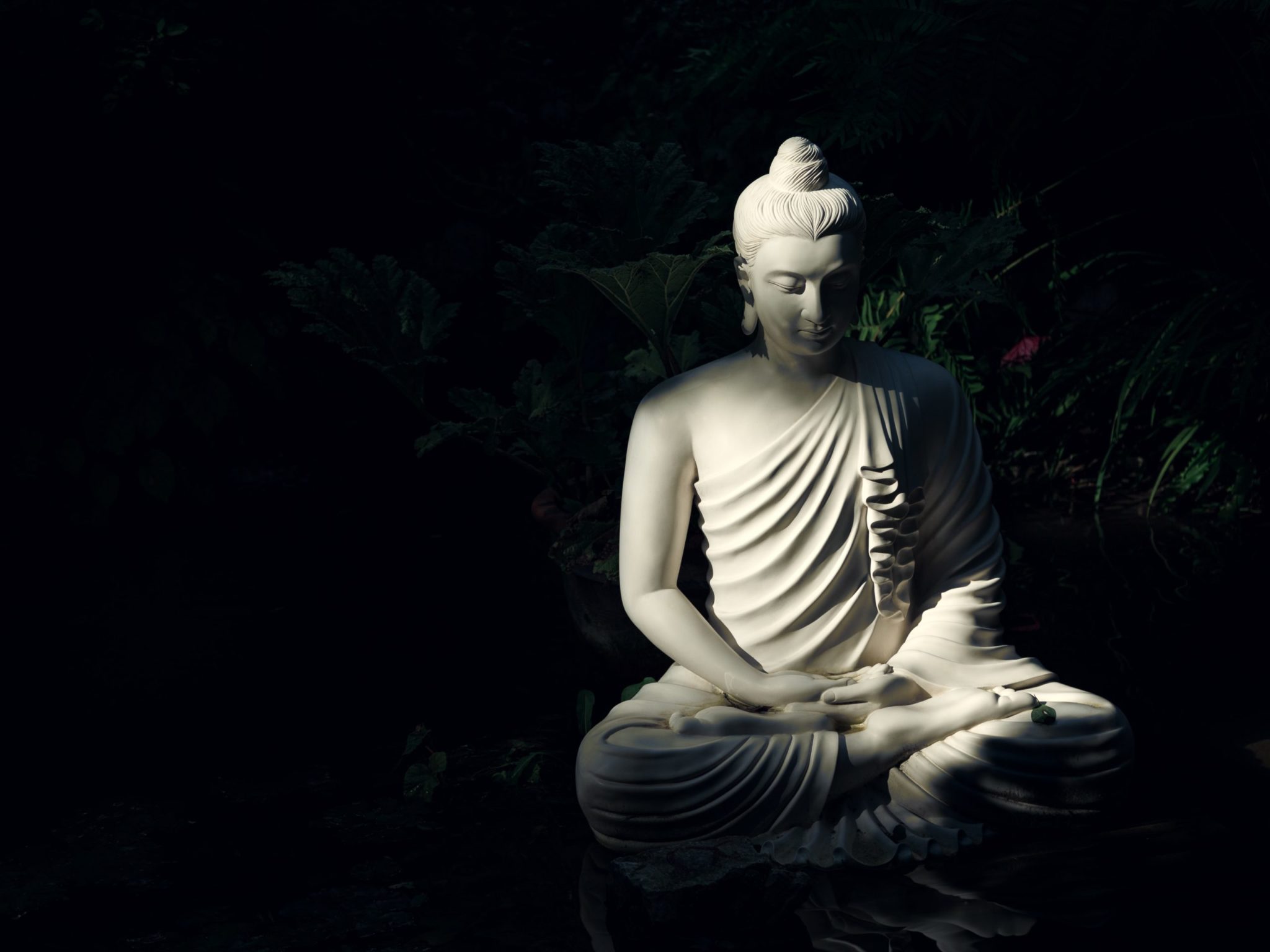If we think about the major world religions, Buddha is the one teacher who hasn’t claimed to be anything other than an ordinary human. The others have claimed to be either God or to be someone working at the behest of God. Buddha stated that human endeavors and realizations inspire their attainments and individual achievements.

Every man has it in themselves to have the potential to be like Buddha. However, Buddha was a perfect human that regarding religion. As per Buddhism, a man is a master of himself. There is no higher being or no extraordinary power that destines a man’s journey.
Buddha states to offer freedom to the one who follows the path of liberation, i.e., Nirvana. The thought of space is considered unique for ages. Buddha believes that a man’s emancipation depends on when they realize the truth. It doesn’t rely on the concept that we call “Grace of God.”
In this article, we will discuss
- What Buddhism is
- How it came about and;
- The values of Buddhism
What is Buddhism?
Buddhism is more of a way of life as it is centered on their practical living. Which I believe is what every religion is all about. Your way of life!
Buddhism was founded by Siddhartha Gautama, a prince in the sixth century B.C. He was later known as the Buddha.
Gautama was born into a wealthy home. Despite the luxuries of life he had at his disposal, he was moved by the ills of the world judging from the things he saw around him.
He decided to give up his luxurious lifestyle in the search for a life of fulfillment. He secretly left his palace and started living alone in a forest. For six years, he mastered the technique of finding inner peace through meditation. Later, he settled at Bodhgaya and decided to remain in meditation until he knew the nature of consciousness.
When Buddha passed away, his followers organized a religious movement. Buddha’s teaching became the bedrock of what became Buddhism. The Mauryan Emperor made Buddhism the state religion of India. Over the centuries, Buddhism spread beyond India.
After the enlightenment, Buddha traveled across northern India and taught meditation for forty-five years. Humans from all castes and professions started following him. Buddha answered their questions and tried to solve their dilemmas.
He tried to encourage his students to confront him throughout his life and ask him questions based on his teachings and relate it to their own experiences.
Meditation brings wisdom; lack of meditation leaves ignorance.
Buddha
Path of Buddha
Buddhism guides us to our purpose in this world and provides us excellent knowledge concerning how the world works. By understanding the basis of causation and influence, using efficient tools like meditation to obtain insight and manifest empathy and understanding, we can tap into our potential to accomplish the final goal of awareness.

If we think it through, we can witness that everything in this world is evolving. As quick as a candle flame or gently like a mountain, even the most “stable” conditions vary. They don’t have a permanent essence.
Our beliefs and feelings are in the same state of perpetual change. The more we apprehend how everything is unstable and conditioned, the better prospect we can keep on our personalities, our attachments, ownership, and conditions— concentrating on what truly values.
If everything arrives and leaves, is there anything that is permanent? As per Buddhism, the only element that is continuously present is the consciousness in which all these events appear. This perception is not only timeless but also innately joyful.
To understand this timeless consciousness here and now one should become aware, which is the primary goal of Buddhism.
Understanding Karma through Buddhism
Buddhism incites us to take accountability for our beings, without moralizing, by recognizing purpose and outcome(karma). Just like gravitation, the law of karma is applied universally.
Buddha described in excellent detail how we develop our future by our perceptions, words, and activities. What we do momentarily incorporates genuine or inadequate responses in our minds. Understanding this provides us great spontaneity and puts us following in charge of our lives. Karma is not a destination. We can decide not to do destructive activities and thus reverse shaping the conditions of future affliction. To sow the roots for good outcomes, we employ positive behaviors.
By Buddhist meditation, we can also eliminate the morose opinions already incorporated in our subconscious from previous actions. Once we witness how much difficulty comes from solely not knowing objective and outcome, we quickly develop empathy for others.
Understanding Compassion and Wisdom
In Buddhism, compassion and wisdom go hand in hand. Following meditation daily, we make more space in our spirit and distance from complex ideas and sentiments. As mentioned above in Buddhism, the practices empower us to understand that everyone has equal necessary intricacies as we possess. We grow our merciful wish to attempt to do something to serve others.
When we work from empathy, concentrating on others first than ourselves, we understand better. The distressing sentiments we have, like passion, vanity, affection, and possessiveness, extricate their hold. Where there is time that we don’t spontaneously fill with our solicitudes any more, the experience can appear instinctively.
Thus, wisdom and compassion tend to grow and support each at every aspect of your life.
Enlightenment
The Buddha was distinctive because he was the first soul to accomplish complete enlightenment in history. But there is no fundamental distinction between the Buddha and an ordinary man. We have an intention, and we can all achieve freedom and understanding with mindfulness.
Our bodies, beliefs, and emotions are invariably switching. Buddhism sees them as “hollow” — void of any enduring substance, meaning that people are no reason for an exceptionally separate individuality or character. The state of freedom happens when we understand this intellectually, along with experiencing it in-depth, persistently. Without an ego, we need to stop catching obligations subjectively. We obtain an immense scope for joyous evolution, without the necessity to respond to every adverse effect that occurs.
Enlightenment is the primary goal in Buddhism. All assertive conditions— particularly joy, fearlessness, and empathy— are wholly fulfilled. With Buddhism, our consciousness is all-encompassing and not restricted in any manner. With no distraction or interruption in our subconscious, we serve others instinctively and effortlessly.
Values of Buddhism
The values of Buddhism are plain and straight forward
- Buddhists believe in meditation as it is a pathway to unveiling the truth.
- Buddhism encourages its people to avoid self-indulgence but also self-denial.
- Buddhists believe in the law of karma and reincarnation.
- Buddhist monks follow a strict code of conduct, which includes celibacy.
- They do not believe in a supreme deity. The followers focus on achieving enlightenment for peace and wisdom. When one reaches this spiritual state it is known as Nirvana.
Buddhism is a faith system that believes in words of wisdom and peace. The teachings of Buddha on the four Noble truths, on the cause of suffering, the truth of suffering. The end thereof and what can free us from suffering.
Buddhism reaches out to the betterment of the people. Remember, that was his drive from the onset, to find solutions for the ill stricken world.
